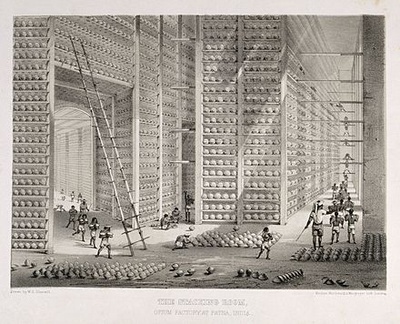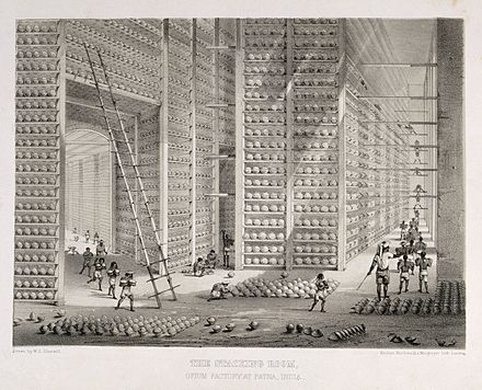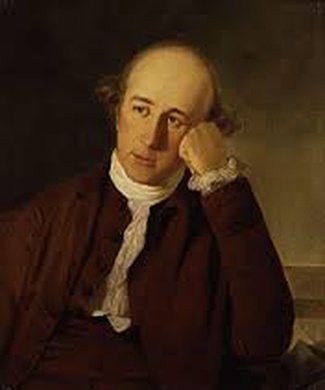
The British East India Company establishes a monopoly on opium cultivation in the Indian province of Bengal.
Following the collapse of the Mughal Empire, opium cultivation entered a period of disorganization until the East India Company was drawn into politics by overthrowing the Indian government in Bengal. A group of British merchants organized an informal opium monopoly in the 1760s that was replaced by an official Company monopoly in 1773.
General Warren Hastings became governor in charge of the Company’s affairs in Bengal and thereby the first governor-general of British India from 1773 to 1786. In creating the Company monopoly, his intent was to control production and limit supply. Later the Company developed a method of growing opium poppies cheaply and abundantly and the focus became expanding cultivation and maximizing profits.
Source: Austin, A.A. (1978). Perspectives on the History of Psychoactive Substance Use. NIDA.
| Drugs: |
Opium (morphine, heroin, opioids) |
| Regions: |
India |
| Topics: |
Cultivation, production and trade, Taxation and regulation |
Related Timeline Items
Opium cultivation and trade under the Mughal Dynasty (1524 - 1707 CE)
Babur, after several failed attempts, establishes his Mughal Dynasty on the Indian subcontinent, and he becomes the first Mughal emperor (1524-1530). Under his rule poppy cultivation and the sale of opium become state monopolies. Opium becomes an important article of trade with China where it is used mostly for medicinal purposes.
Durinq the reign of the great Moghul emperor Akbar (1556-1605), poppy land is a regular source of revenue to the state, and production is carefully monitored. According to the testimonies of 16th-century travelers, opium eating in India (usually in beverage form) is common, but not smoking.
The opium trade was important throughout the Mughal Empire until its collapse c. 1707. At that point control of the opium trade was taken over by merchants in Patna, by then a centre for British involvement in international trade.
Playing with prohibition in China (1780s)
In 1780, the Chinese imperial court releases another edict – this time prohibiting the consumption of opium and reiterating the earlier prohibition on selling opium.
In 1787, the directors of the British East India Company, aware of Chinese official policy, indicate their willingness to consider prohibiting the export of opium from India to China. Company officials based in China, however, argue that the Chinese are never sincere on the matter. Officials issue edicts against opium with one hand while they extend the other to accept bribes.
Opium: a force of destruction in China? (1800 - 1830 CE)
Opium becomes identified with illegal trade, criminal activity and official corruption. The imperial court and provincial officials issue a stream of edicts prohibiting importation, cultivation, sale and use of opium. They increase the harshness of penalties to include execution. They make examples of Chinese merchants, corrupt officials and users. They put pressure on foreign traders, closing access to ports and restricting their ability to live in China.
The foreign traders flood the market using off-shore locations to transfer the opium from their clipper ships to small well-armed Chinese boats called “fast crabs” or “scrambling dragons” that take the product ashore. The price of opium drops.
Smoking opium spreads from the coast, along the rivers and into the cities. Men aged 20-55 are the principle users with government workers and soldiers heavily represented. Opium is reported to be demoralizing people, sapping the energy of the army and corrupting local officials and the police.

Opium drying room in India, c. 1850

General Warren Hastings: Governor-General of British India, 1773-1786
Previous
Next


